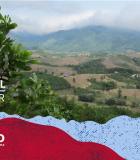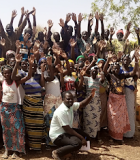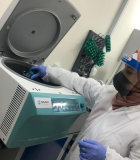Safe water, improved sanitation, waste management, and electricity are prerequisites for infection prevention in health care facilities. However, the dire state of water, sanitation, and hygiene (WASH) in health care facilities globally, both rural and urban, is a neglected problem — and never more critical than now as COVID-19 tears its way around the world.
Swachchhata, which means cleanliness in Nepali, is a $4.9 million, five-year USAID WASH project (2016–2021) in rural Nepal. In light of COVID-19, the importance of cleanliness is clear. Nepal is a USAID priority country for water, and this project’s goal is to get sustainable WASH into health care facilities where there is little to none.
Susan K. Barnett of the Global Water 2020 Initiative had the opportunity to travel with SNV USA, now known as DevWorks International and the prime implementing partner for Swachchhata, into the rugged middle mountains of Nepal to see the activity’s innovative improvements and community engagement firsthand. As it would turn out, this trip took place at the exact time COVID-19 was silently brewing next door in China.
Read the full article on Global Waters Stories on Medium.






